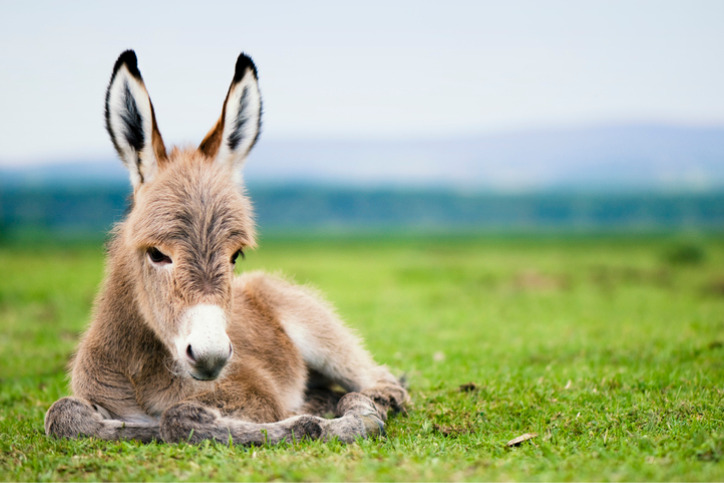Animal Welfare: The Donkey Skin Trade
Donkey Skin Trade
Donkeys are inhumanely killed for their skin as a source of ejiao (pronounced uh-jee-ow), a gelatin substance contained in Chinese beauty products, food, drinks, and traditional medicines.
Although China is the major consumer of ejiao products, the US imports ~ $12 million dollars of ejiao products annually. These products are sold worldwide on Amazon.
Read on to learn more about the donkey skin trade and what you can do to prevent it.

About the Donkey Skin Trade
by Lauren Kleine, DVM and the NYSVMS Animal Welfare Committee
Donkeys are inhumanely killed for their skin as a source of ejiao (pronounced uh-jee-ow), a gelatin substance contained in Chinese beauty products, food, drinks, and traditional medicines. Although China is the major consumer of ejiao products, the US imports ~ $12 million dollars of ejiao products annually. These products are sold worldwide on Amazon.
The rising demand for ejiao products has decimated China’s domestic donkey population. It is estimated that a minimum of 4.8 million donkey skins are traded globally each year to meet the demand in China.
The donkey skin trade violates international animal welfare standards in every regard including inhumane treatment, transport, and slaughter methods. Even in countries where the donkey skin trade is legal, trade routes result in spread of transboundary disease that threaten human and animal health due to a lack of regulation.
Donkeys are often stolen to meet the high demand for their skins. This issue is most devastating in developing countries where donkeys are essential to millions of impoverished people. Donkeys are often the main or only source of income in many communities. Farmers use donkeys to cultivate land, transport manure for fertilizer, harvest crops, and transport produce and commercialized goods to market. The money earned from donkeys pays for everything including food, clothing, supplies, and schooling. Families become vulnerable as a result of donkey theft.
The theft of a donkey results in loss of income but also the ability to transport water, firewood, goods to market, and children to school. Millions of women depend on donkeys to complete these vital domestic tasks. The combined effect limits the growth of women and children in community related roles as they must complete such tasks without assistance when a donkey is stolen. Donkey theft also has a direct negative impact on the elderly and disabled, who may not be physically able to complete tasks without the assistance of their donkeys. Rising market prices due to depopulation typically prohibit purchase of a new donkey. Farmers who sell or trade their donkeys may experience short term benefits; however, they become vulnerable to poverty in the long term.
Only the skin is of value to the trader. Illegal killing of donkeys results in abandoned carcasses while legal slaughterhouses have inappropriate disposal methods. Carcasses are piled up and left to rot which contributes to environmental contamination of water, land, and air.
The donkey is now one of the most highly trafficked animals in the world. Donkey skin shipping routes are utilized to conceal trafficking of endangered wildlife, drugs, arms, and other illegal activities which are hidden in the skins facilitating highly organized international crime. The global movement of millions of untreated skins in conjunction with illegal wildlife trade and wildlife products imposes serious health risks to both humans and animals while potentiating the risk for zoonotic disease transmission.
Although the donkey skin trade is a worldwide issue, it is a crisis in some countries. Donkeys face extinction in Kenya as the donkey death rate is five times the birth rate due to the skin trade. Donkeys in Asia, Africa, and Latin America are being decimated.
The slaughter of millions of donkeys every year is not sustainable and is unethical on all levels.
If you would like to help make a difference, you can:
- Share this information with others
- Contact Amazon to request they stop the sale of ejiao products
- Reach out to your representatives to share your support for re-introducing legislation that would ban the knowing sale of ejiao-containing products.
Don’t know who to contact? Search for your congressional representatives.
Learn more about donkey welfare issues:
